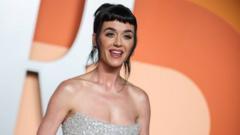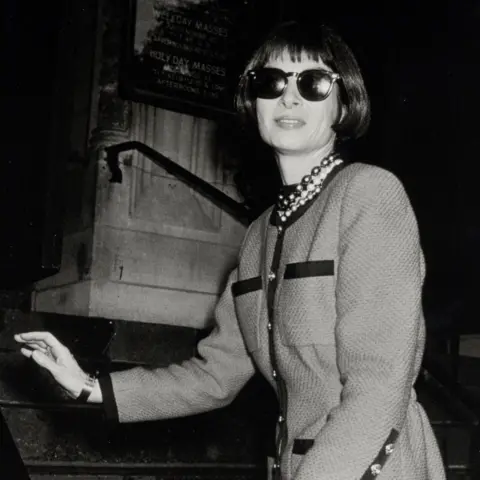This week, Katy Perry, the American pop superstar renowned for her upbeat and catchy songs, expressed feeling like a "human Piñata" amid a wave of online negativity. This colorful metaphor underscores a serious issue. A decade after her iconic Super Bowl performance, Perry's involvement in the controversial Blue Origin spaceflight has overshadowed her career, invoking ridicule online after she expressed her deep emotional connection upon landing. A fast-food chain even jokingly asked if they could send her back into space, illustrating the degree of mockery she faced.
The singer's recent world tour, which kicked off in Mexico on April 23, has met with criticism concerning her performance and choreography, raising questions about her current relevance in the music scene. Perry attributes some of the online vitriol to an "unhinged and unhealed" internet climate. Nonetheless, is social media toxicity truly the sole factor influencing her downturn?
Michael Cragg, a music journalist and author of "Reach for the Stars," argues that Perry's struggle lies in her inability to adapt to the evolving landscape of pop culture. Once the quintessential pop diva of the 2010s, known for her whimsical and playful aesthetic, Perry's earlier successes, including her celebrated album "Teenage Dream," seem distant in today's music industry.
Despite the success of songs like "Roar" and "Dark Horse," Perry hasn't achieved a chart-topping single on her own in years. Her latest empowerment anthem, "Woman's World," has faced criticism for its lack of depth and failed to resonate with an audience sensitive to the producer's controversial background, further complicating her return.
This failure to reinvent herself reflects a broader evolution in female pop stardom. Rising stars like Chappell Roan and Sabrina Carpenter captivate audiences through authenticity and self-assuredness, qualities that contrast sharply with Perry's image struggle. Despite her attempts to distance herself from her pop persona, Perry's past decisions and evolving artistic direction have alienated her from a younger demographic seeking genuine representation.
As she grappled with these issues, Perry's extravagant Las Vegas residency from 2021-2023 garnered commercial success, yet it hasn't translated to a new fan base. Cragg points out her contrasting image does not fit well within the current pop culture landscape, making her seem somewhat out of touch against pressing global issues.
In response to her critics, Perry received surprise support from fans in a digital billboard campaign in New York, expressing their unwavering loyalty. Even amid backlash, Perry recognizes the complexities of navigating fame and public scrutiny in an age dominated by social media, where one wrong move can provoke a backlash.
Supporters romanticize her journey, as messages reveal a desire to celebrate her contributions to pop music amid the swirling tides of online commentary. Yet the intensity of the criticism reflects deeper issues, including pervasive misogyny faced by women in the spotlight, a sentiment echoed by industry commentators who emphasize the unique challenges female artists endure.
Looking ahead, industry insiders speculate that a successful single could help stabilize her career, though the landscape of streaming and music consumption has dramatically changed since her peak years, posing ongoing challenges for seasoned artists like Perry.





















